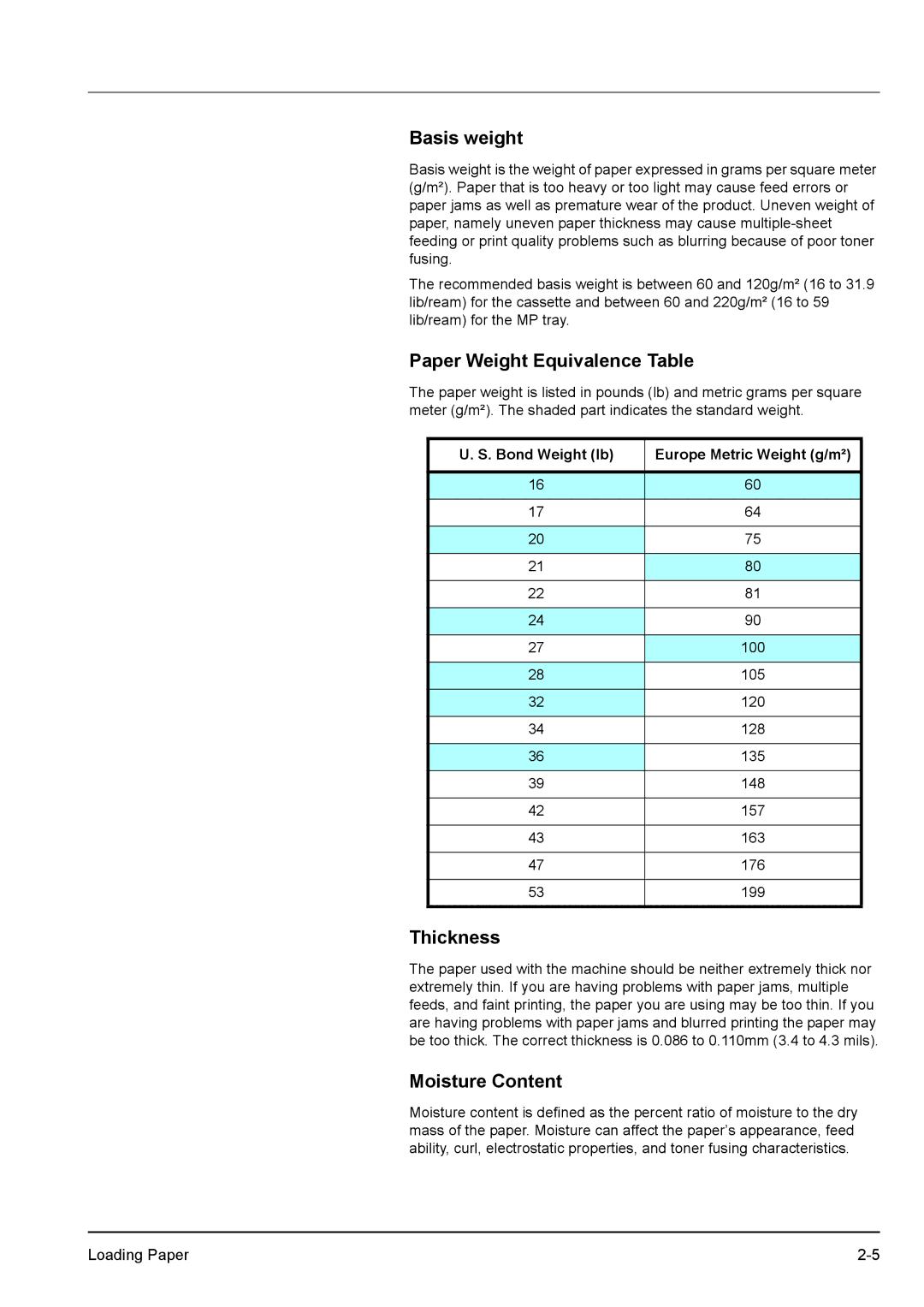
Basis weight
Basis weight is the weight of paper expressed in grams per square meter (g/m²). Paper that is too heavy or too light may cause feed errors or paper jams as well as premature wear of the product. Uneven weight of paper, namely uneven paper thickness may cause
The recommended basis weight is between 60 and 120g/m² (16 to 31.9 lib/ream) for the cassette and between 60 and 220g/m² (16 to 59 lib/ream) for the MP tray.
Paper Weight Equivalence Table
The paper weight is listed in pounds (lb) and metric grams per square meter (g/m²). The shaded part indicates the standard weight.
U. S. Bond Weight (lb) | Europe Metric Weight (g/m²) |
|
|
16 | 60 |
17 | 64 |
|
|
20 | 75 |
21 | 80 |
|
|
22 | 81 |
|
|
24 | 90 |
27 | 100 |
|
|
28 | 105 |
32 | 120 |
34 | 128 |
|
|
36 | 135 |
39 | 148 |
|
|
42 | 157 |
|
|
43 | 163 |
|
|
47 | 176 |
|
|
53 | 199 |
|
|
Thickness
The paper used with the machine should be neither extremely thick nor extremely thin. If you are having problems with paper jams, multiple feeds, and faint printing, the paper you are using may be too thin. If you are having problems with paper jams and blurred printing the paper may be too thick. The correct thickness is 0.086 to 0.110mm (3.4 to 4.3 mils).
Moisture Content
Moisture content is defined as the percent ratio of moisture to the dry mass of the paper. Moisture can affect the paper’s appearance, feed ability, curl, electrostatic properties, and toner fusing characteristics.
Loading Paper |
